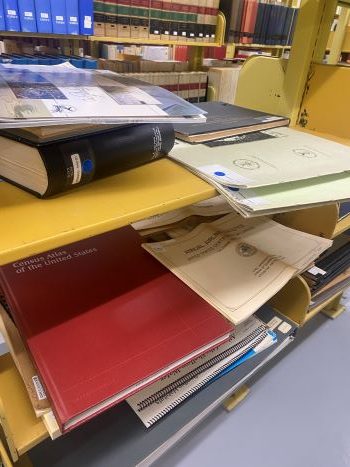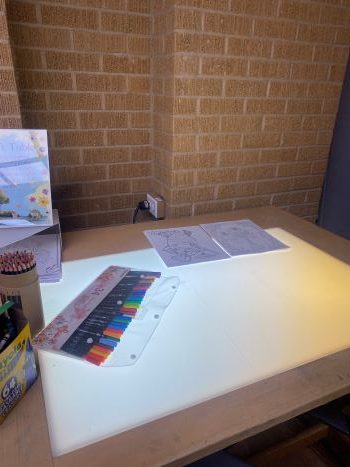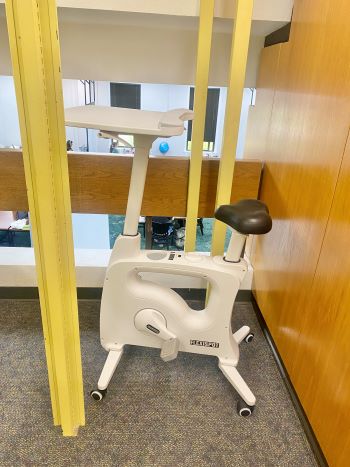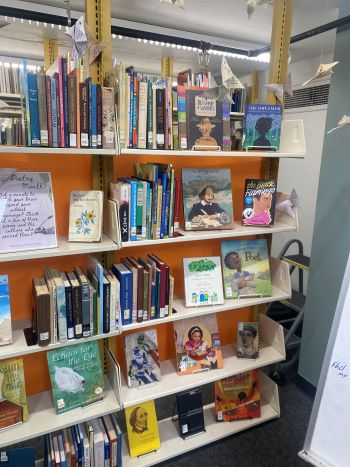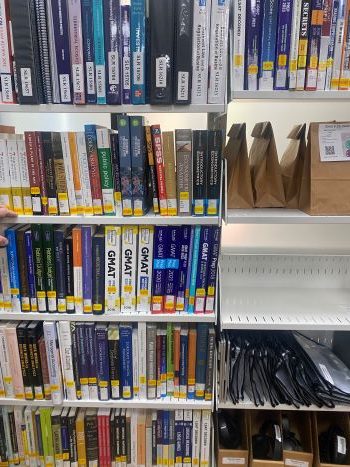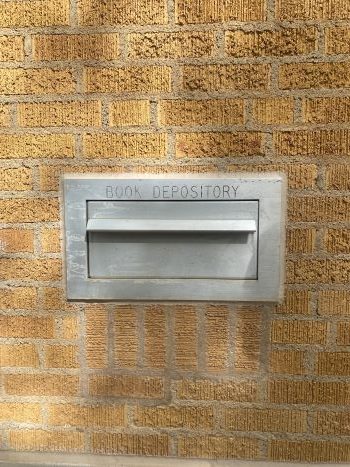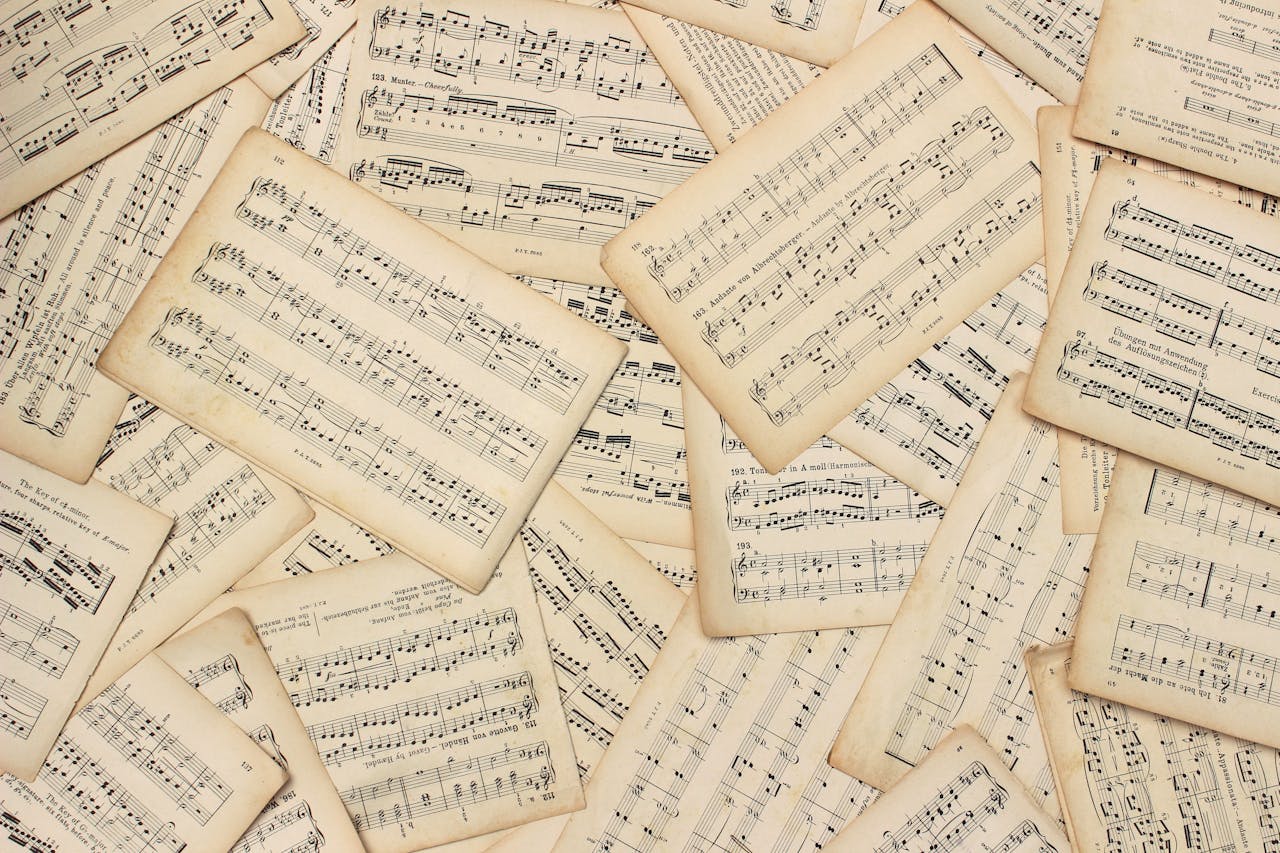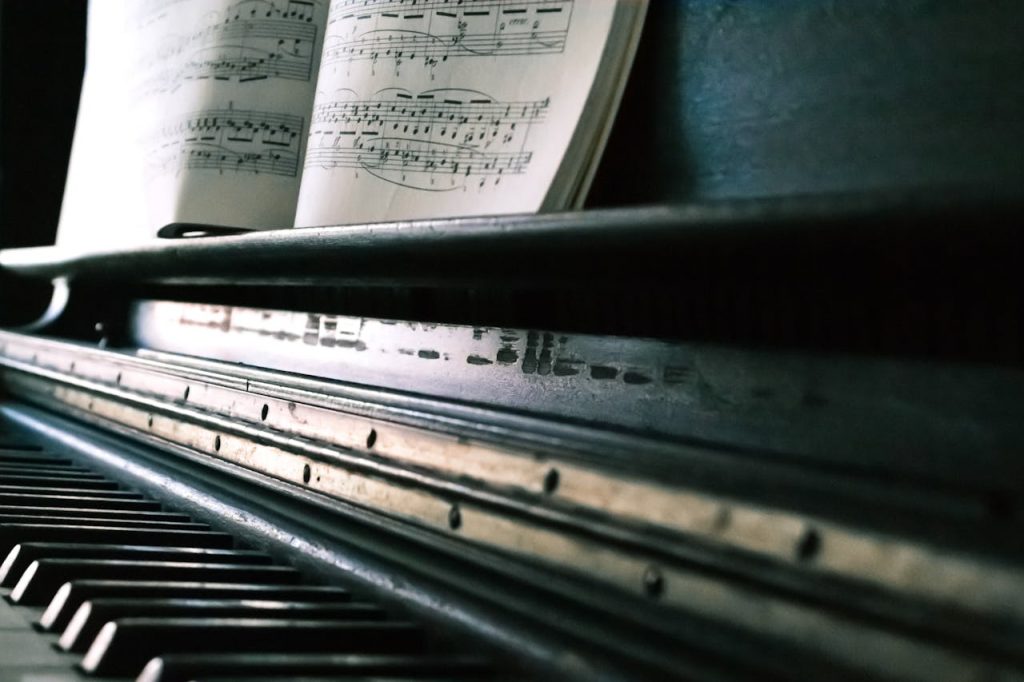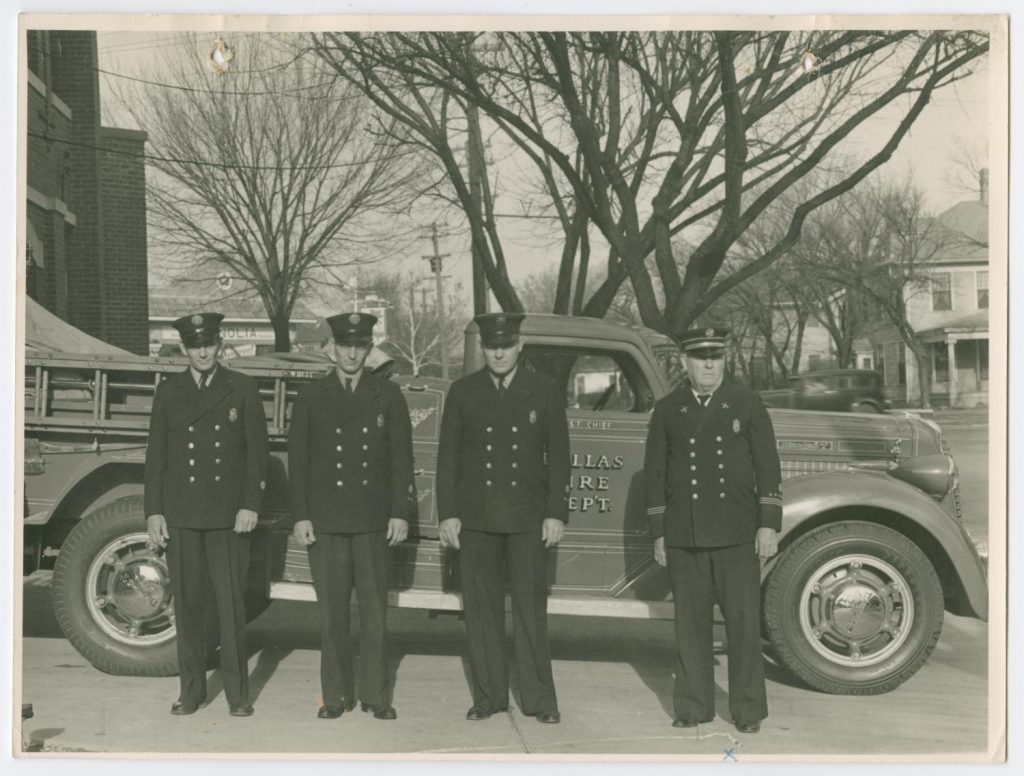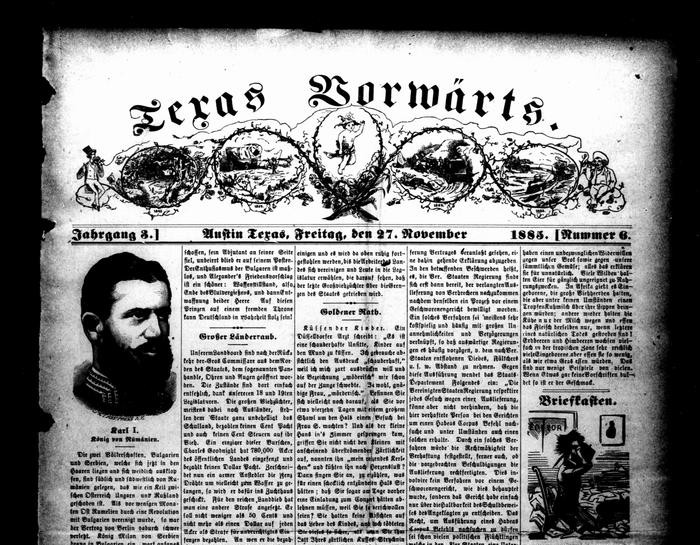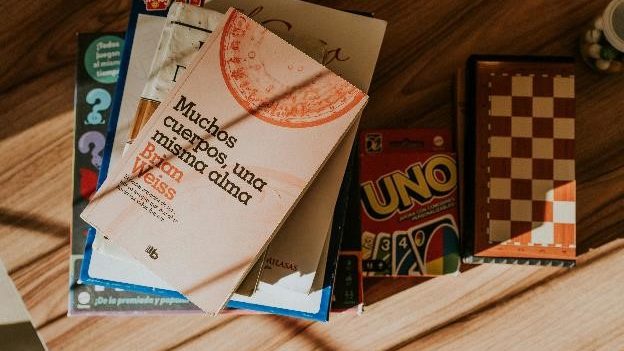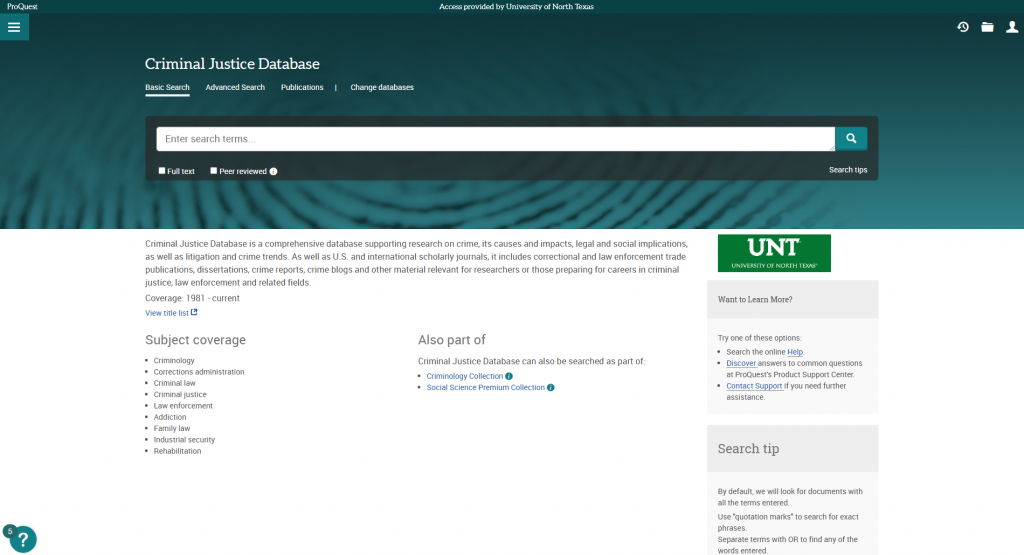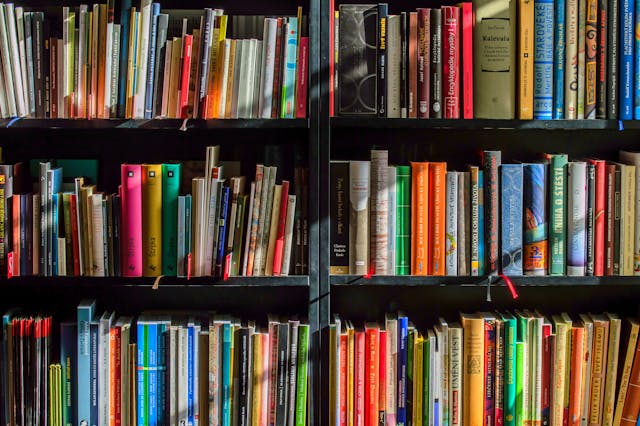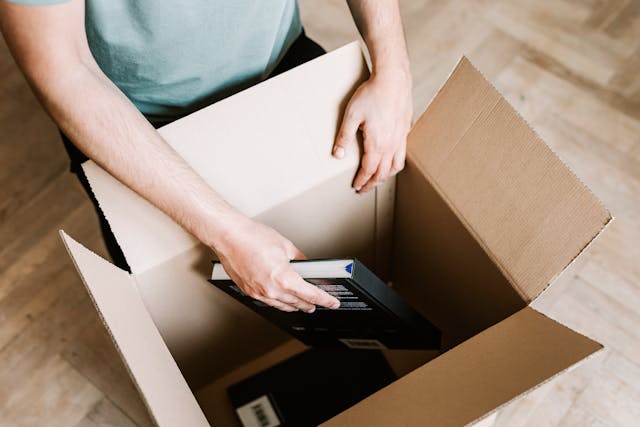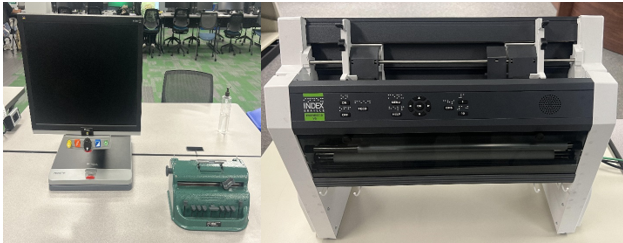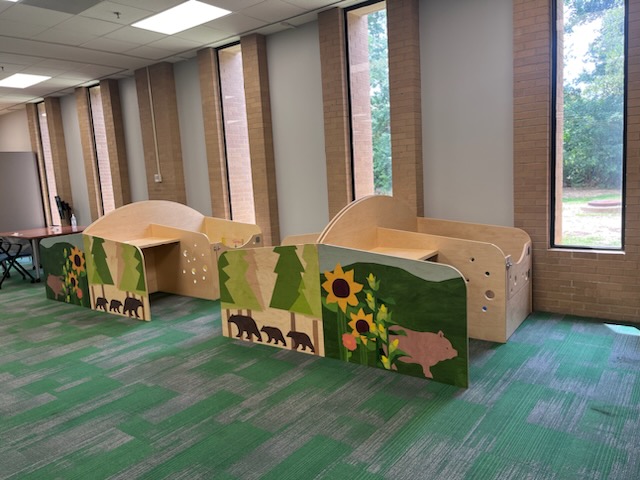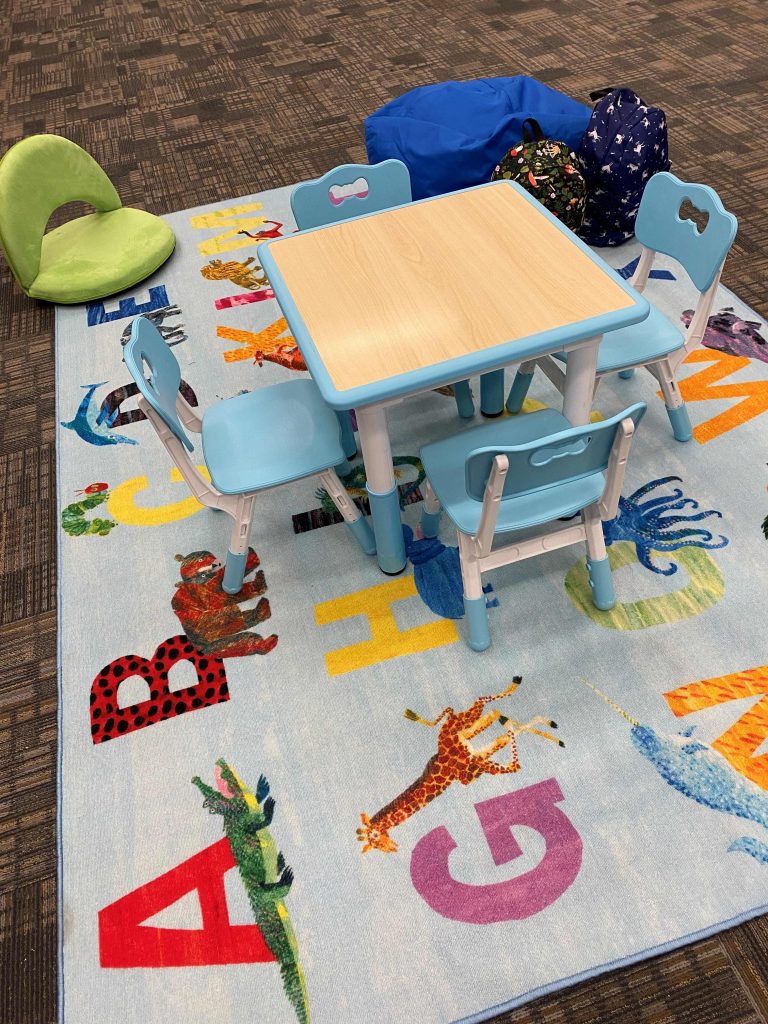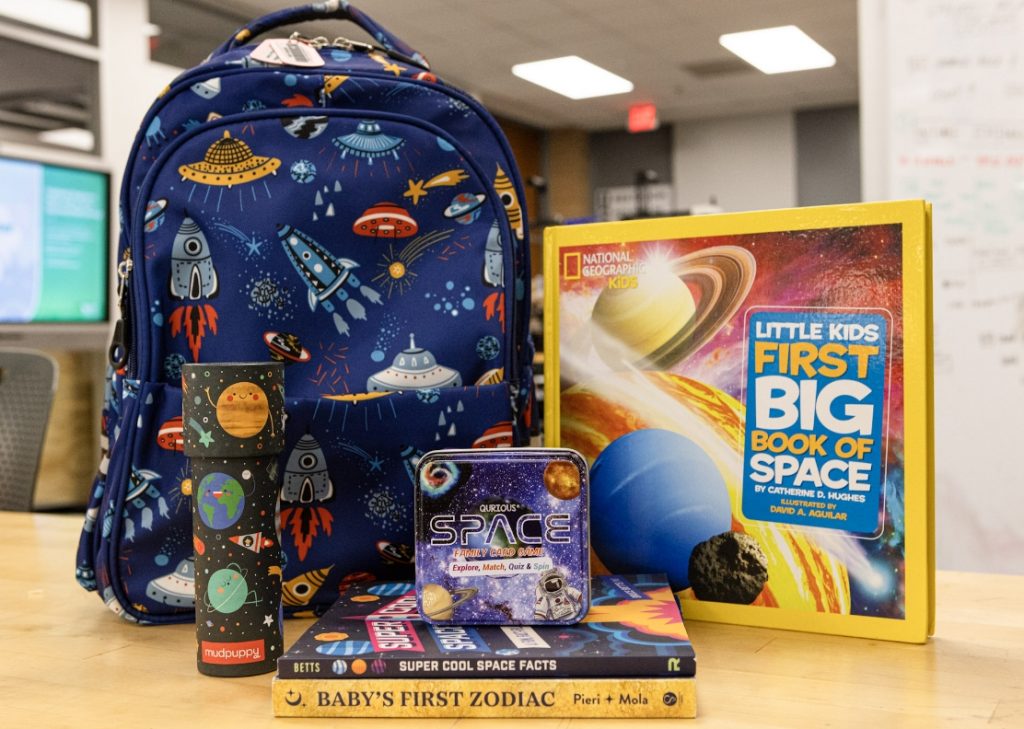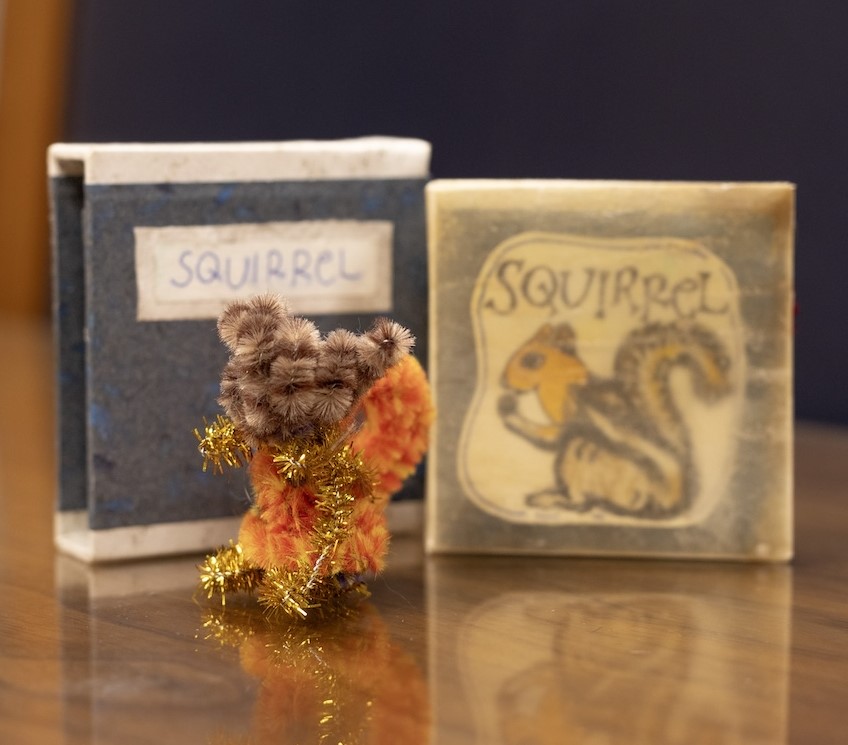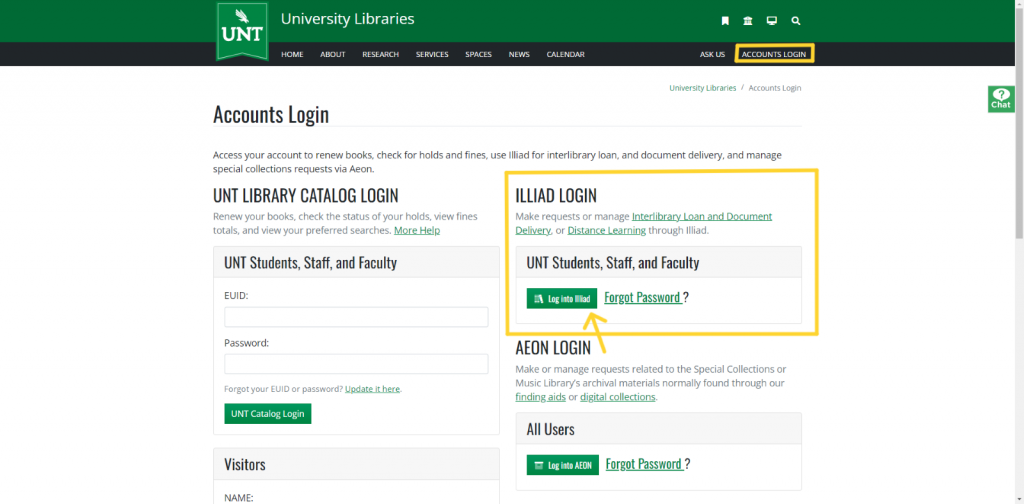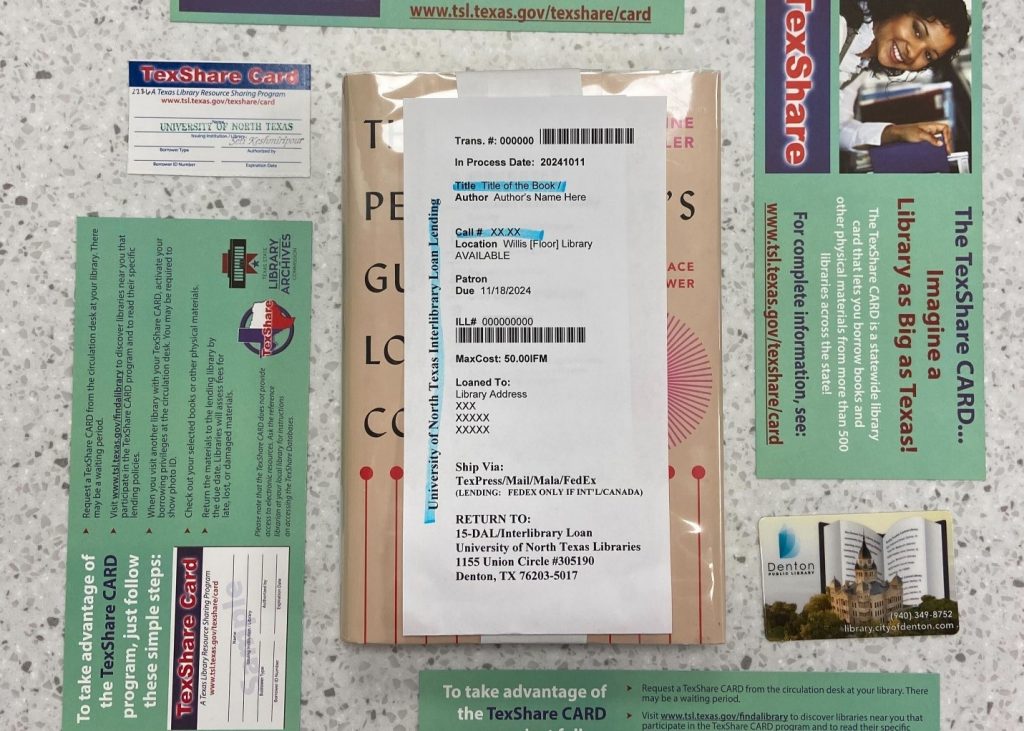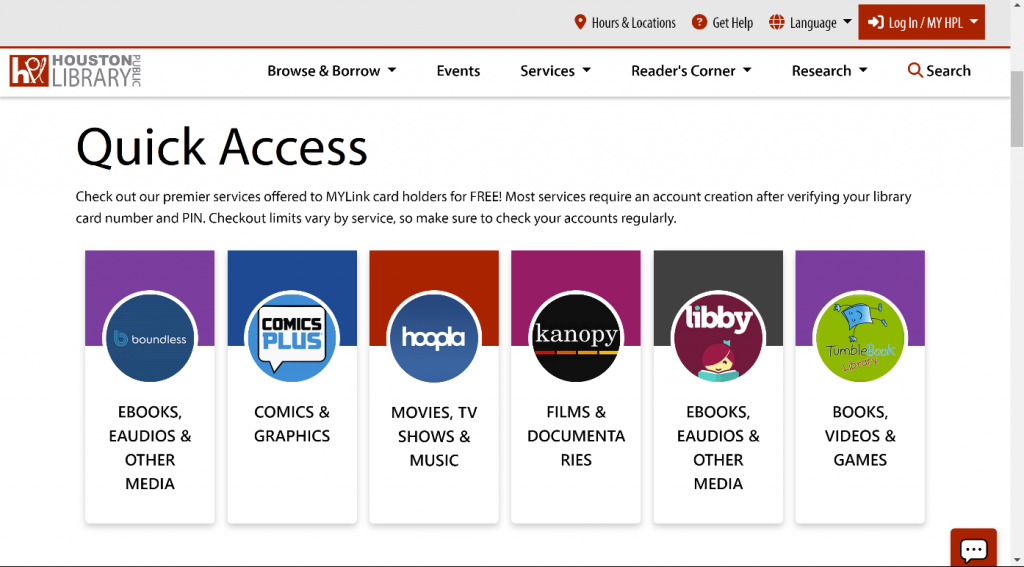Written by Ian Augustine
Neurodiversity is a term used to describe how different a person’s cognitive abilities are from someone else. However, as Harvard Health (2021) states, “there is no one ‘right’ way of thinking, learning, and behaving, and differences are not viewed as deficits,” (Baumer & Frueh, para. 1). In Judy Singer’s 1998 Sociology honors thesis, she reinforced the idea that everyone learns at a different pace and may need additional assistance to manage schoolwork and other responsibilities in their life. From Singer’s thesis, the term “neurodiversity” became popularized to the wider public.
“Neurodiversity” was a first used as a term to describe people with the Autism Spectrum Disorder (ASD) but began to include more neurological “disabilities” such as Attention Deficit Hyperactivity Disorder (ADHD), Dyslexia (difficulty reading and identifying words), and Dyscalculia (difficulty comprehending mathematics). Each of these disabilities can make it difficult for people to engage in social interactions and maintain focus. While these disabilities do present roadblocks, there are several types of accommodations and disability services designed to help neurodivergent individuals succeed in school and at work.
Willis Library Resources
The Collections Strategist Librarian, Evan Peebles, created the Neurodiversity Libguide to connect UNT students to neurodiversity resources on and off campus. For example, did you know that students can check out sensory kits and weighted lap pads at the Willis Library Service Desk? These kits include fidget toys and noise canceling headphones which can be checked out up to three days.
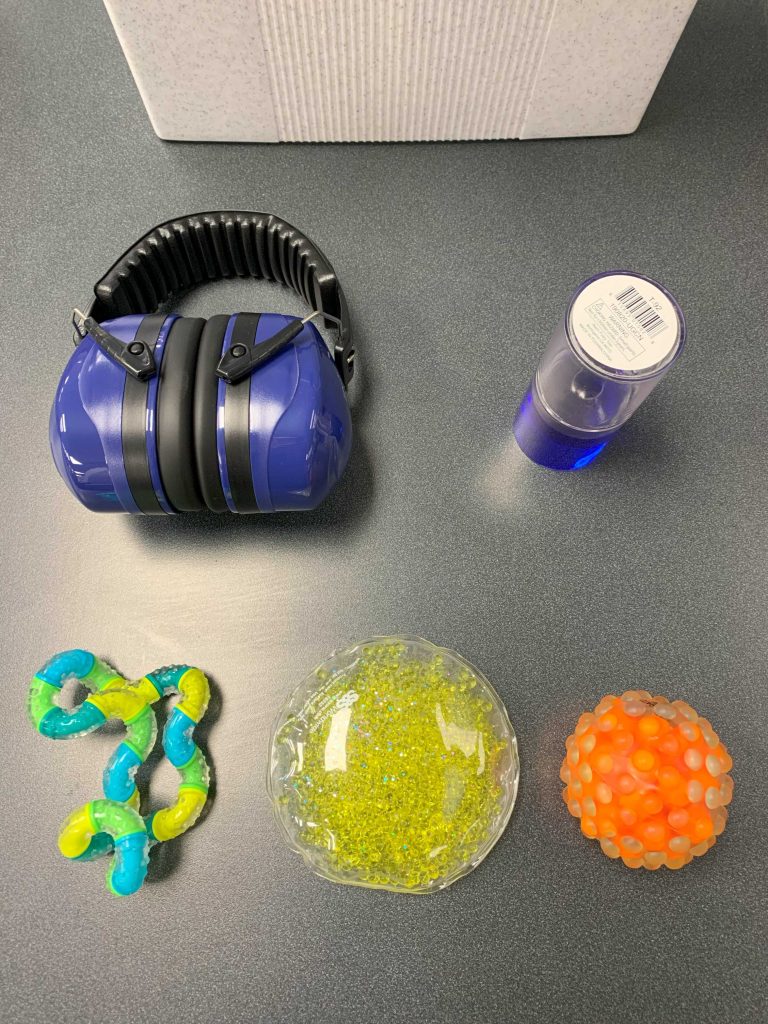
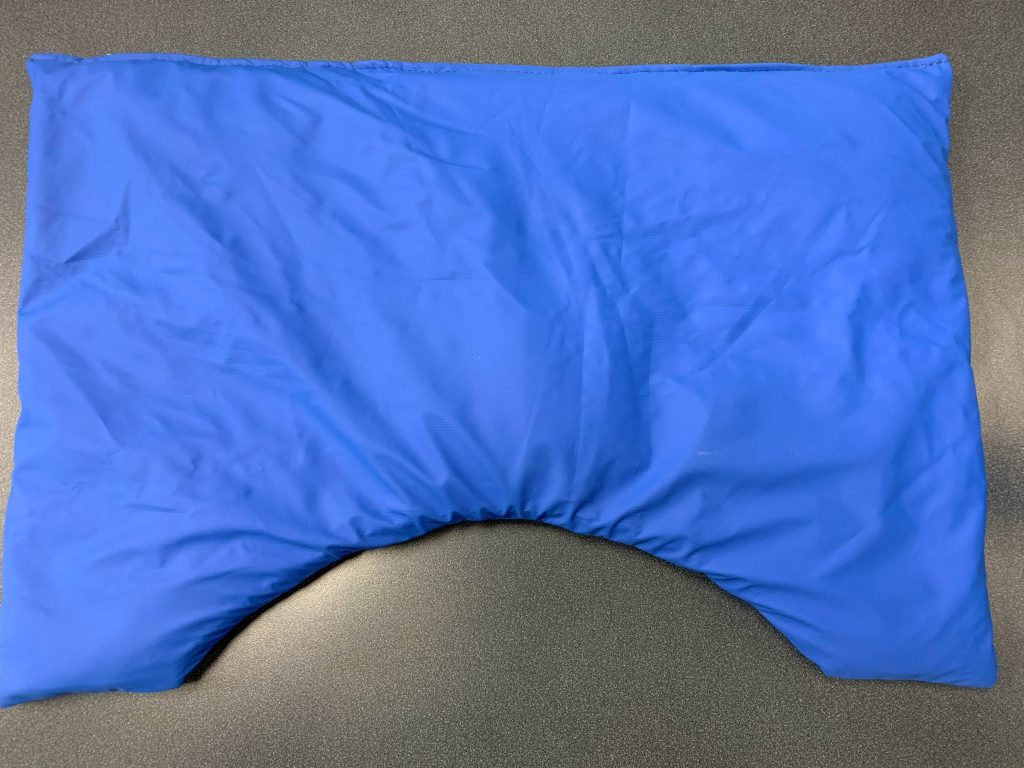
Other accessibility devices can be checked out from Willis Library’s Service Desk such as C-Pen Readers (a scanner that reads text out loud; a speaker and microphone included), assisted listening devices like the POCKETALKER (amplifies sound with headphones), magnifiers, and enlarged calculators for individuals with visual impairments.
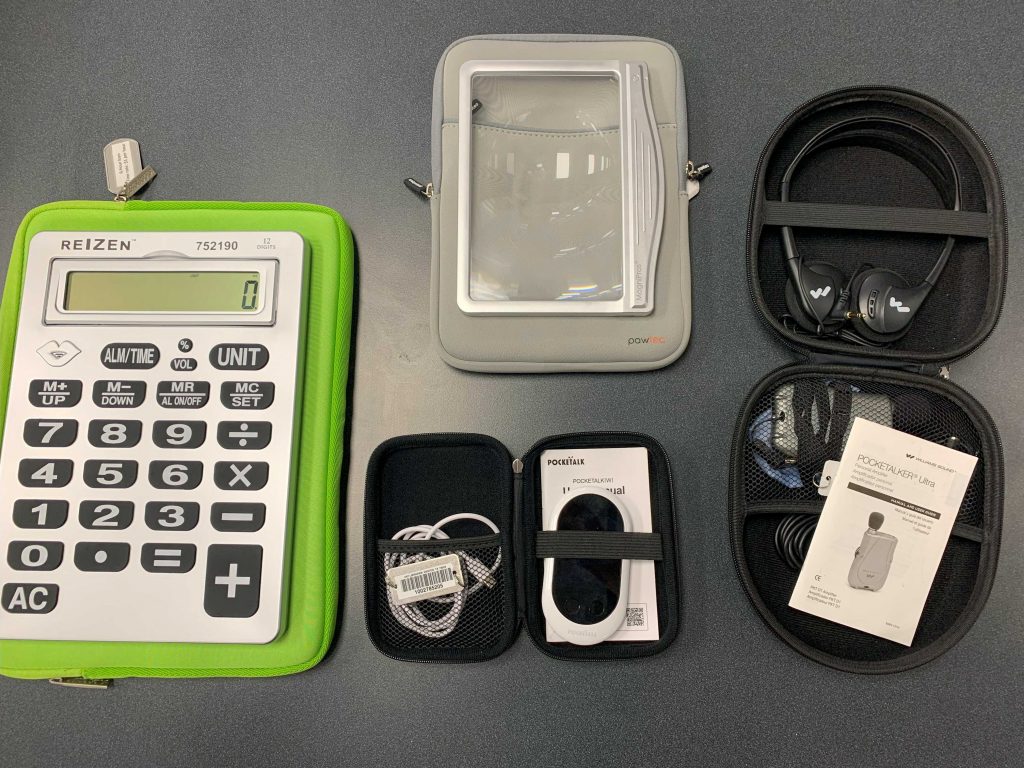

In addition, Willis Library offers a wide range of materials that help explain what neurodiversity is and strategies on how to overcome challenges in college:
Books
- The power of neurodiversity: unleashing the advantages of your differently wired brain by Thomas Armstrong (Print)
- Going to college with autism: tips and strategies from successful voices by Emily Rutherford (E-Book)
Videos
- The limits of my world a film by Heather Cassano
- TED Talk: The World Needs All Kinds of Minds by Temple Grandin
Journals
Help Yourself Campaign:
- The Help Yourself Campaign is a library guide dedicated to connecting students with mindfulness, mental health, and self-advocacy resources available on campus.
- It has a Disabilities and Neurodiversity section which offers some assistance with finding relevant articles and books in UNT’s database.
- Some examples are Approaching Disability by Rebecca Mallett and The Autoimmune Brain by David Younger.
Study Pods and Spaces

- For students that are looking for a small, soundproofed room, Study Pods are available to reserve on the Lower Level, 1st, and 2nd floors of Willis Library.
- Lower Level is a designated quiet space
- The 1st and 2nd floors are loud social spaces. These floors are typically used for group studying, events, and playing games.
- The 3rd and 4th floors are quieter collaborative floors. The 4th floor contains special collections from the Music Library and Special Collections departments.
The Writing Center and Learning Center
- The Writing Center services are available in Room 250J on Sundays to Thursdays from 5-9 pm.
- Tutoring services from the Learning Center are offered in Room 250C on Wednesdays and Thursdays, 12 to 3 pm.
- Both services on the 2nd floor are available as walk-ins only. You can also schedule an appointment through the Navigate app/website or by contacting them through their emails: LCTutoring@unt.edu & WritingCenter@unt.edu.
A more in-depth guide about accessibility services and devices available at Willis Library can be found in GSA, Apurwa Bhattarai’s Scholar Speak blog, “ADA-Compliant Equipment at UNT Libraries.”
UNT Student Services
- ODA: The Office of Disability Access offers accommodations for UNT students, staff, and faculty to ensure that everyone can thrive while attending college. Some of the services they offer to students are alternative testing locations, extra time on assignments and tests/exams, note-taking assistance, and alternative formats for textbooks/assignments.
- UNT Neurodiversity Initiative: “The UNT Neurodiversity Initiative provides access to and information about a variety of groups, training opportunities, and research efforts that are designed to promote awareness, understanding, and acceptance of neurodivergent students, faculty, and staff in our university community” (UNT Neurodiversity Initiative, n.d., para. 1).
- UNT ENGAGE: Embracing Neurodivergent Groups in Academics and Gainful Employment is a program that offers weekly support meetings and group activities with Engage staff and GSAs. Only forty-eight students are accepted into ENGAGE, but it seeks to provide tailored support for neurodivergent students at home, in school, and when they’re looking for a job. They can be contacted for additional help at engage@unt.edu
- EPIC: Empowering Personal Interactions in the Community offers social and learning opportunities in stress management, nutrition, goal setting, game nights, movie nights, and local Denton activities. EPIC can be contacted at untepic@unt.edu.
- Eagle Chat: A peer support group service where students can freely share what’s on their mind in a safe, non-judgmental space. It is run by volunteers from the Department of Audiology and Speech and Language Pathology, UNT Libraries, and UNT ENGAGE. It’s located in the Crumley Hall Conference Room on Thursdays from 5:30p.m. to 6:30 p.m. To learn more, contact Eagle Chat at eaglechat@unt.edu.
- UNT Well Clinic: A service that offers individual and group counseling sessions, career evaluations, and adjunctive therapy services for UNT students. This program is available during the Spring, Summer, and Fall Semesters as short-term or long-term counseling. UNT Well Clinic can be reached at askSHWC@unt.edu.
- Perspectives of Communication Social Skills Group: A program dedicated to improving and enhancing speech, language, and social skill deficits. It offers individualized and group social intervention workshops designed to teach students how to overcome obstacles or handle misinterpretations in social interactions. If you have any questions about this service, reach out to Stacy.Nunnelee@unt.edu.
National Organizations
Support for neurodiverse students does not just stop at UNT’s campuses. The Libguide displays outside organizations like Autism Self-Advocacy Network (ASAN), ADDitude (online magazine platform for students with ADHD), and Learning Disabilities Association of America (LDA). These organizations provide information about how to advocate for yourself as a neurodiverse student and what protective laws and regulations are in place to help you succeed.
For additional information, contact Evan Peebles at their email Evan.Peebles@unt.edu or at (940) 565 – 4715; and The Neurodiversity Initiative at lucy.gafford@unt.edu
References
ADDitude (n.d.). https://www.additudemag.com/category/parenting-adhd-kids/school-learning/college/
Autistic Self Advocacy Network (n.d.) Navigating College. https://autisticadvocacy.org/resources/books/navigating-college/
Baumer, N. and Frueh, J. (2021, November 23). What is Neurodiversity? Harvard Health Publishing. https://www.health.harvard.edu/blog/what-is-neurodiversity-202111232645
Learning Disabilities Association of America (n.d.). https://ldaamerica.org/category/post-secondary-options/
Peebles, E. (n.d.). Neurodiversity Resources for UNT Students. Neurodiversity Libguide. https://guides.library.unt.edu/neurodiversitystudents
Singer, J. (n.d.) Reflections of Neurodiversity. https://neurodiversity2.blogspot.com/p/what.html
University of North Texas (n.d.). Services for Persons with Disabilities. https://library.unt.edu/services/persons-with-disabilities
University of North Texas (n.d.). UNT Neurodiversity Initiative. https://neurodiversity.unt.edu/
University of North Texas Division of Student Affairs (n.d.). Student Health and Wellness Center. https://studentaffairs.unt.edu/student-health-and-wellness-center/index.html


